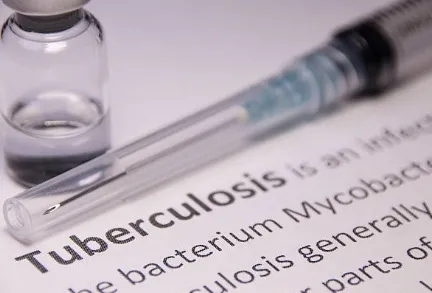Molecular Stool Test Holds Potential for TB Diagnosis in HIV-Positive Adults: Research

Synopsis
Key Takeaways
- New molecular stool test for TB diagnosis.
- Study conducted in three African countries.
- Higher risk of TB in HIV-positive individuals.
- Research published in The Lancet Microbe.
- Stool test shows promising sensitivity and specificity.
New Delhi, April 4 (NationPress) In a significant advancement beyond traditional sputum tests, a recent study has revealed that a molecular stool test may enhance the detection of tuberculosis (TB) among individuals living with HIV.
The findings, published in the journal The Lancet Microbe, indicate that applying a molecular test (known as Xpert MTB/RIF Ultra), previously utilized for respiratory samples, to stool specimens—previously suggested only for children—could be established as an additional diagnostic tool for identifying TB in adults with HIV.
This could signify a major shift in the approach to diagnosing the disease in this demographic, according to the research team led by the Barcelona Institute for Global Health (ISGlobal), Spain.
“Individuals living with HIV are at an elevated risk for developing pulmonary TB, yet diagnosing this condition in such cases is particularly difficult due to the low sensitivity of conventional methods,” notes George William Kasule, a doctoral candidate at ISGlobal and the primary author of the study.
TB, caused by the bacterium Mycobacterium tuberculosis, resulted in 1.25 million fatalities in 2023, with 13 percent of these deaths occurring among individuals living with HIV.
At present, the primary diagnostic approach for TB hinges on sputum samples—acquired through deep coughing and expectoration of lung-produced secretions. For those living with HIV, a molecular sputum test is advised in conjunction with urine antigen detection (TB-LAM).
However, these diagnostic methods often fall short for many individuals with HIV, as they typically find it challenging to produce sputum, and over half of those in advanced disease stages are unable to do so.
Additionally, the concentration of bacteria in sputum is frequently so minimal that it remains undetectable.
To address this issue, the new research concentrated on stool samples. The team enlisted 677 patients aged 15 and older with HIV and suspected TB across medical facilities in three African nations—Eswatini, Mozambique, and Uganda—from December 2021 to August 2024.
Participants contributed sputum, urine, stool, and blood samples.
The outcomes demonstrated that the stool test achieved a sensitivity of 23.7 percent and a specificity of 94.0 percent when compared to the reference standard.
“Our study's findings advocate for the use of the Stool Ultra test as a supplementary instrument for diagnosing tuberculosis in individuals living with HIV, particularly those with advanced AIDS, where the tuberculosis risk is heightened,” stated Alberto L. Garcia-Basteiro, a researcher at ISGlobal and head of the Vaccine and Immune Response to Infections Unit at Hospital Clínic de Barcelona.
The Stool Ultra test identified additional cases that were missed by TB-LAM, Ultra in sputum, or bacterial culture, and it could confirm the disease in numerous instances where respiratory tests yielded negative results.









